
The fresh page of a new year—what a thrilling place to be. And to kick off 2014, Colorlines asked several community leaders to share their racial justice wishes for the year. We wanted to know, what are some truly attainable victories for justice in the coming year? And how could any one of us help achieve them? Just reading the list we received gives me a lot of life and excitement for what lies ahead.
It’s true, 2013 was a painful year in racial justice. Besides the George Zimmerman verdict, Paula Deen and Twerkgate, we witnessed numerous shootings of young people of color, including Renisha McBride in Michigan, Marshall Coulter in New Orleans and Israel Hernandez in Miami. My people, Cuban immigrants in Miami, have a saying that is particularly apt at this moment, lo bueno de esto es lo malo que se seta poniendo—which loosely translates to, “the good thing about this is how bad it is getting.” Fewer people can ignore or deny the race problem in this country. With instant media glued to the palm of our hands, many of us are unable to turn away from the wounds in our communities. In 2013, many of us learned or were reminded, racism actually kills.
So what could my eternally optimistic Cuban outlook be? My own racial justice wish for 2014 is that we (re)turn to the spiritual and cultural resources all around us and use them to find solace and speak truth, to build community and understanding. I hope we dig into books, make meals together, listen to each other’s voices lifted in song.
And you can help make my wish true by joining us at Facing Race 2014 in Dallas in November. It will be amazing; you will make it more amazing. I’ve recently joined the Colorlines team as director of the Leadership Action Network at Race Forward, which publishes Colorlines, and I’m hoping to connect in person with as much of our virtual family as possible at Facing Race. You can still propose a workshop, bring your art, be a part of this powerful, change-making community. Art and culture will feature prominently. It will be a gathering of people who are turning towards racial justice, who are turning towards love.
Until then, I urge you to find inspiration—and action—in these ideas from some of the community leaders we hope will join us at Facing Race as well.
Ai-jen Poo
New York
Proud granddaughter and advocate for working women
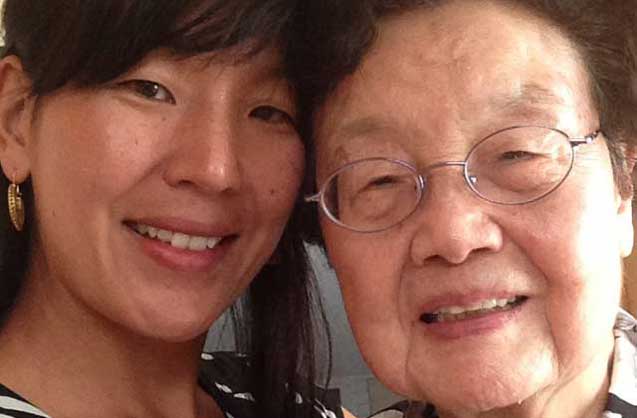 (Photo: Colorlines)
(Photo: Colorlines)
My Wish
Our elected leaders turn their attention toward the care needs of aging Americans, while truly strengthening the workforce that we’re counting on to help us meet those needs.
My grandmother turned 87 this year. A retired nurse and immigrant from Taiwan, she has helped to raise my sister and I with her own unique brand of strength, humor and care. She’s still healthy, active and living independently, in large part because she is supported by a wonderful home care worker named Mrs. Sun a few days per week. It is a blessing that she lives life on her own terms, attending church twice per week, watching her favorite kung-fu soap operas or playing mah-jong whenever she wants to, in her community. However, I fear that support she currently receives won’t always be enough. And Mrs. Sun’s wages, which she earns through publicly funded programs, are simply not enough to support her family. I worry about both of them. And I worry about my mother, who turns 65 next year, but lives 2,000 miles away. I wonder who will take care of her. And I believe that there are millions of other people like me with similar worries. With the “age wave” taking hold, we need a robust solution to our undeniable need for care for our aging loved ones, and one that truly also takes care of the predominantly women of color workers like Mrs. Sun who do this work.
How You Can Help
Call each and every candidate running for office in your community this year, and let them know that caring for our aging loved ones and the workforce that supports them is a priority for you. Tell them you want to hear what they’re going to do to address this issue. And, I invite you to celebrate Grandparents Day on Sept. 7, 2014—give your caregivers the day off and take your grandparents out or take your children to spend time with their grandparents.
Makani Themba
Washington, D.C.
Funkstress, strategist and lover of justice
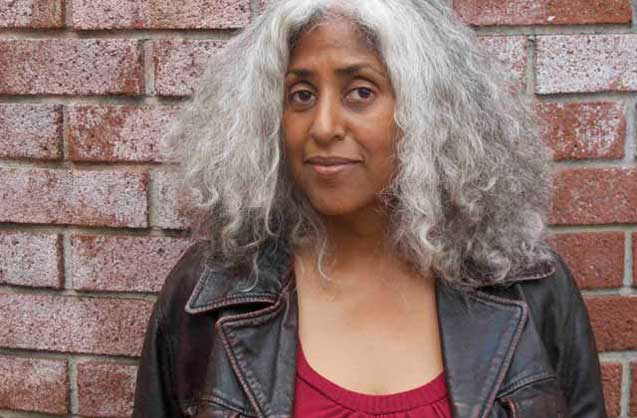 (Photo: Colorlines)
(Photo: Colorlines)
My Wish
A fight for anti-racist, anti-oppression education in our schools.
I am a grandmother, a mother, a daughter, an auntie, a sister. I want a future where my children and grandchildren know liberation and live lives where they can be wholly human, joyful and free. I’m claiming it for them and for all of us. Tomorrow’s voters, leaders, followers and fools are today’s school children. There’s not enough progressive engagement around what our kids are learning about the world and each other. Yet, education is a critical mechanism for shaping our belief. How will we ever win any real victories if most of the public cannot grasp the basic history and analysis that are at the root of our issues?
How You Can Help
Anyone can get involved in what’s happening at schools. Show up to the school board meetings. Find out who’s organizing and how to support them—especially intergenerational groups.
Norris Henderson
New Orleans
Founder and executive director of Voice Of The Ex-offender, former lead inmate counsel at Louisiana State Penitentiary at Angola, father and grandfather
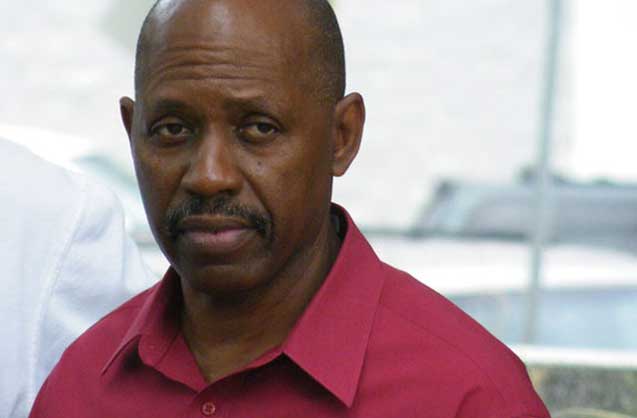 (Photo: Colorlines)
(Photo: Colorlines)
My Wish
Offer undoing-racism training in elementary and high schools, to aid in students’ education—or lack thereof—on how race impacts folks’ daily lives.
On the national level, this casual conversation is happening about, ‘What color is Santa Claus?’ So the opportunity has presented itself. Because of the current climate, I think it would be easy to get someone excited about this issue. I am from a generation that had to confront racism head on. I don’t want another generation in this country or world to endure man’s inhumanity to one another, which manifests itself through racist policies in criminal justice practices, education, housing and healthcare.
How You Can Help
If you have school-age kids, contact your kids’ school administrators about their extracurricular activity.
Saru Jayaraman
Oakland, Calif.
Co-Director, Restaurant Opportunities Centers United
Director, Food Labor Research Center, University of California, Berkeley
 (Photo: Colorlines)
(Photo: Colorlines)
My Wish
That all racially conscious people who eat out in restaurants—which is most likely all racially conscious people—will help us reduce racial segregation in the restaurant industry by speaking up to restaurant employers about racial segregation every time they eat out.
As a woman of color and the mother of two brown-skinned daughters, racial justice in the restaurant industry is incredibly important to me. I want my daughters growing up eating out and seeing that people of their skin color are in every position in a restaurant, from the back to the front. With over 10 million workers, the restaurant industry is one of the largest and fastest growing private sector employers in the United States—and the absolute lowest paying. It is also one of the largest employers of people of color. While there are some livable wage jobs in this industry—namely waitstaff and bartending positions in fine dining restaurants—those positions are held almost exclusively by white workers. People of color are largely relegated to lower level positions (bussers, runners, dishwashers) and lower level segments (like casual restaurants and fast food), resulting in a $4 wage gap between white workers and workers of color in this industry.
How You Can Help
Read our book, “Behind the Kitchen Door,” which explains how racial segregation works in our industry. Then, using our free ROC National Diners Guide smartphone app, submit your observations about the racial makeup of waitstaff, bussers and other workers every time you eat out. And at the end of your meal, voice your values to restaurant employers.
L’lerrét Jazelle Ailith
New Orleans
Xavier University student, blogger at ELIXHER and member of BreakOUT!
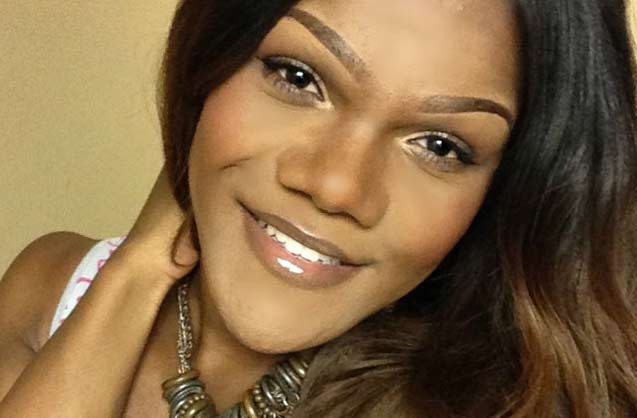 (Photo: Colorlines)
(Photo: Colorlines)
My Wish
For all people of color—and people of other marginalized identities—to have greater connection to their communities. I wish for movements to be able to hold a myriad of identities within their work and approach issues from an intersectional analysis. I also wish that no matter how many different identities one holds, that we can find our similarities and stand in solidarity to help one another achieve equality and racial justice.
As a young, queer, African American woman of trans* experience, one thing that I cannot stand in America is that my legitimacy as an “authentic” black person is constantly questioned and feels like it is in jeopardy, depending on the circumstance or which parts of my other identities are at play. All marginalized groups endure social stratification outside their community, but I find it hard to achieve any justice for our community if we don’t eliminate the schisms (like colorism, classism, sexism and heterosexism) that create dissonance inside our community and erase our common identity as black people and people committed to racial justice.
How You Can Help
Encourage your organizations and others to affirm and validate the multiplicity of identities we all hold. Plan activities and events that will help build community and unity among us.
Rashad Robinson
New York
Executive director, ColorOfChange.org
Board member, Race Forward (publisher of Colorlines)
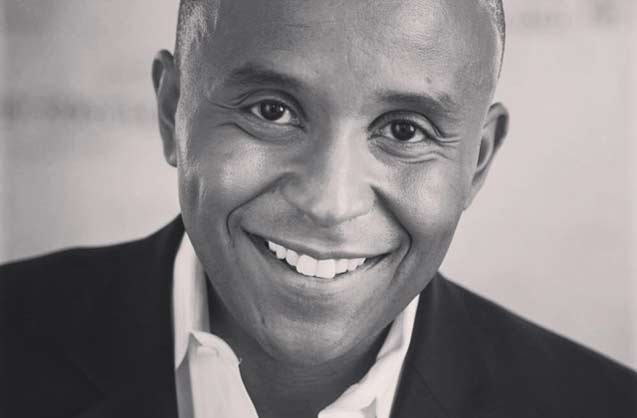 (Photo: Colorlines)
(Photo: Colorlines)
My Wish
To see members of the rising American electorate continue to vote at 2012 rates in 2014.
In a post-Shelby decision world, without an exciting presidential race on the ballot, it’s more important than ever that the coalition that re-elected President Obama and made history in 2012—a rising American electorate of black folks, women, labor, young people and other people of color—come out to vote for the issues that matter most in their lives in 2014. Whether it’s reforming gun laws like “Stand Your Ground,” expanding Medicaid or expanding the freedom to vote by updating the Voting Rights Act, we must make our voices heard if we are to make government more responsive to our concerns and build the world within which we want to live.
How You Can Help
Register and vote.
Paulina Helm-Hernandez
Atlanta
Queer, femme, chicana, mestiza, political organizer, strategist, artist and trouble maker-at-large
 (Photo: Colorlines)
(Photo: Colorlines)
My Wish
That we are able to halt the massive detentions and deportations under President Obama’s immigration policy, which to me is entirely possible! We’ve seen the growing fight-back from immigrant communities, communities of color and the LGBTQ community as we grow our own political force to hold Obama accountable to deliver REAL relief to undocumented immigrant communities.
I have a personal stake in this, because when we talk about “other” people in deportation and detention, we’re talking about ourselves and our beloveds, our parents and siblings. I care because my family is black and brown. I am tired of President Obama pretending this is a neutral issue that affects “other” people, instead of a policy that keeps the balance of power in the hands of a white political majority that doesn’t care about our collective destiny as people of color in the U.S. I believe it’s part of our generational imperative to bring true racial justice to bear in our lifetime—so that not another precious queer and trans life is lost to us, so not one more person of color experiences the pain and isolation of detentions and deportations.
How You Can Help
The first step I’d encourage folks to take is to join the Not One More campaign, so we can join forces with other people across the country who are tired of waiting on the sidelines for some perfect comprehensive immigration reform to be hashed out. We must act because our politicians won’t. From art-making to community building to escalated actions, we must act wherever we can and are willing, because our communities are worth the risk!
Bishop Tonyia M. Rawls
Charlotte, N.C.
Founder/Executive Director of The Freedom Center for Social Justice
Founding Pastor of Sacred Souls Community Church
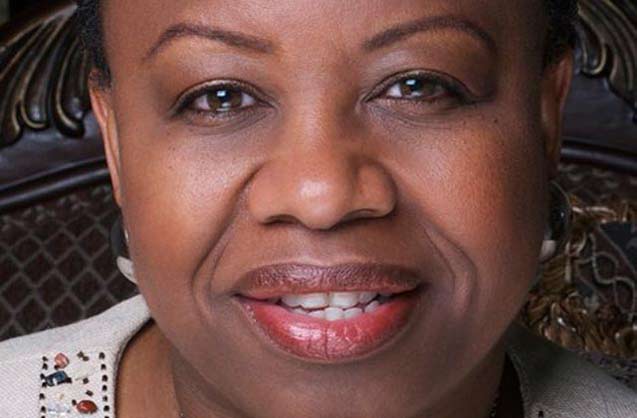 (Photo: Colorlines)
(Photo: Colorlines)
My Wish
A national campaign that would speak to “Race Beyond Black and White,” where 1,000 people commit to connecting with a Native American person, Asian Pacific Islander person, Mexican American person and people from a wide range of racial and ethnic identities.
I have learned over my years of doing religious, social and economic justice work that each time I think I am finished expanding the circle of welcome and service, new hands appear outside of that circle. We must never stop recognizing nor, where appropriate, seeking out the hands that our work have not yet touched.
How You Can Help
Commit to a one-on-one, simple meal. We could all have year-end regional gatherings, maybe celebrations or potlucks that honor the varied racial and ethnic heritages of the country.
Cherri Foytlin
Rayne, La.
Advocate, journalist and mother of six
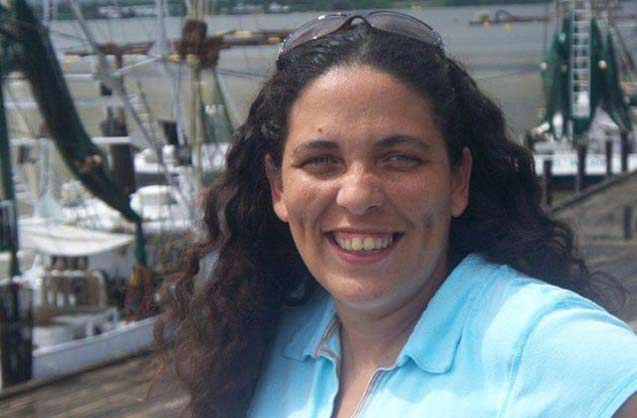 (Photo: Colorlines)
(Photo: Colorlines)
My Wish
Most of the mothers, fathers, sisters, brothers and children who are burying their loved ones due to climate change and industrial pollution are people of color and the poor. I would like to see an understanding of this fact within the Obama administration, particularly through amending the president’s climate action plan to include the human and civil rights of people of color and the economically disadvantaged who are already being adversely affected.
I live and raise my children in the deep Southern region of Louisiana, an area inundated by industrial pollution thanks to the oil and chemical industries and the state politicians—most of whom are mere puppets to these same corporate entities. This handful of greedy corporations are the direct cause of most of the devastating health, ecological and economic effects to our poorer residents, and particularly to families of color. Around this time last year the climate change watch group DARA produced a report that attributed around 5 million global deaths per year to climate change. Add that to the 1.3 billion or so people who live in unhealthy conditions thanks to industrial pollution. As we continue to watch our coastline wash away, our children’s bodies cloud with toxins, our waters befouled by BP’s toxic tar balls and the rape and assault of our life-providing Mother Earth, I feel that we all have a moral obligation to act on behalf of our children and in defense of our grandchildren to come.
How You Can Help
Contact the White House directly and get involved in local and national efforts to confront the effects of climate change holistically. Meaning, challenge local representation to provide an equitable plan to dismantle the existing fossil fuel-based economic and social framework and to encourage the development of infrastructure that combats climate change head on. A pipeline is not the base of the fight, it is in raising social conscious and empowering people to participate in their own need for survival and that of future generations.
Reprinted with permission of Colorlines.com. Sign up to receive Colorlines Direct, a weekly email digest of key stories on Colorlines.com. You’ll get award-winning news from our multi-racial team of writers covering hot topics and a broad range of issues from a racial justice perspective.
Angry, shocked, overwhelmed? Take action: Support independent media.
We’ve borne witness to a chaotic first few months in Trump’s presidency.
Over the last months, each executive order has delivered shock and bewilderment — a core part of a strategy to make the right-wing turn feel inevitable and overwhelming. But, as organizer Sandra Avalos implored us to remember in Truthout last November, “Together, we are more powerful than Trump.”
Indeed, the Trump administration is pushing through executive orders, but — as we’ve reported at Truthout — many are in legal limbo and face court challenges from unions and civil rights groups. Efforts to quash anti-racist teaching and DEI programs are stalled by education faculty, staff, and students refusing to comply. And communities across the country are coming together to raise the alarm on ICE raids, inform neighbors of their civil rights, and protect each other in moving shows of solidarity.
It will be a long fight ahead. And as nonprofit movement media, Truthout plans to be there documenting and uplifting resistance.
As we undertake this life-sustaining work, we appeal for your support. Please, if you find value in what we do, join our community of sustainers by making a monthly or one-time gift.